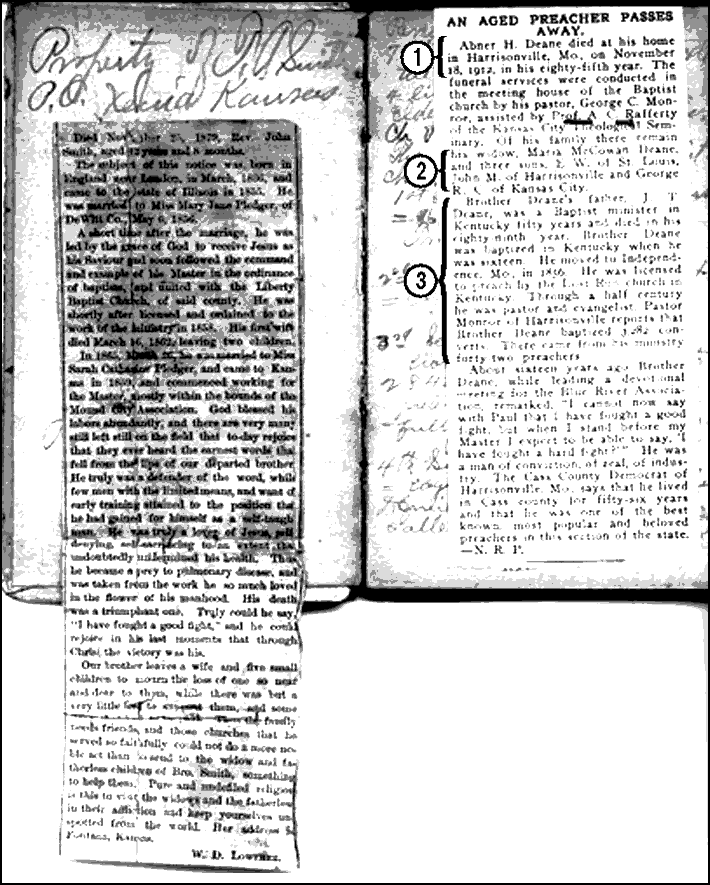
|
Check these publications for the
newspapers printed in your area of interest and
where they can be used:
- Clarence Brigham,
History and Bibliography of American
Newspapers, 1690-1920, 2 vols., (Worcester,
Mass.: American Antiquarian Society, 1947)
-
Winifred Gregory, American Newspapers, 1821-1926
A Union List of Files Available in the
United States and Canada (1937. Reprint. New York:
Kraus, 1967)
-
U.S. Library of Congress publication Newspapers in
Microform: United States, 1848-1983, 2 vols. (Washington,
D.C.: Library of Congress, 1984)
|


